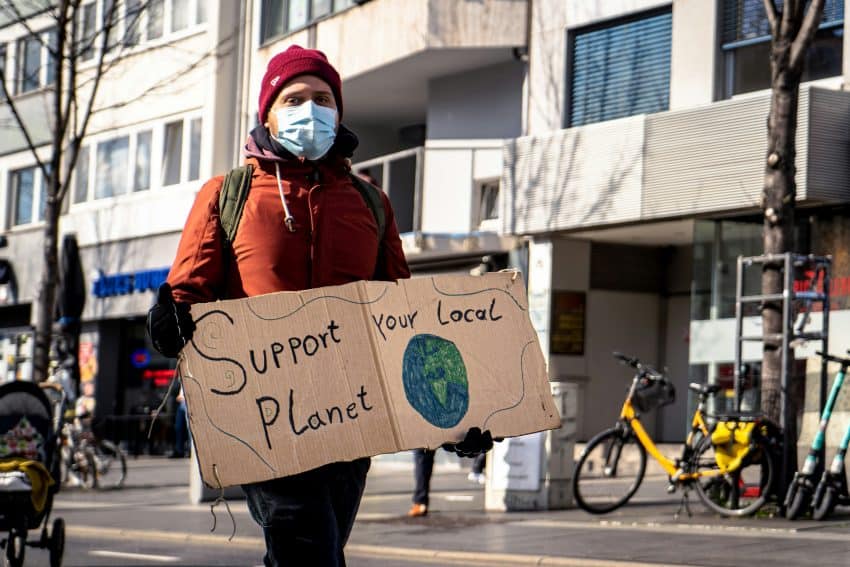The COVID-19 pandemic disrupted many aspects of life, including the global conversation on climate change. While the pandemic brought unprecedented challenges, it also offered a unique opportunity to reflect on environmental issues. As the world paused, so did many human activities contributing to climate change. However, this temporary slowdown highlighted our deep-seated challenges in addressing the climate crisis.
A Temporary Pause in Emissions
During the pandemic, lockdowns and reduced travel caused a significant drop in carbon emissions. Factories shut down, roads cleared of traffic, and flights were grounded. As a result, global carbon dioxide (CO2) emissions fell by around 6% in 2020, marking the largest annual decrease in history. This reduction in emissions led to cleaner air in cities and clearer skies in many parts of the world. It also served as a glimpse of what could be achieved if human activities were more sustainably managed.
Nevertheless, this drop in emissions was short-lived. As economies began to reopen, emissions quickly rebounded. The temporary nature of this decrease revealed the limitations of short-term solutions and underscored the need for long-term, systemic changes. While the pandemic showed that reducing emissions is possible, it also emphasized that achieving lasting climate solutions requires sustained effort and global cooperation.
The Rise of Environmental Awareness
On the positive side, the pandemic raised awareness about environmental issues in a way few events have. People living in urban areas noticed cleaner air and quieter streets. Many saw the direct connection between human activity and environmental impact for the first time. This heightened awareness has increased public support for climate action and sustainability initiatives.
Moreover, as businesses and individuals adapted to new working methods, such as remote work and virtual meetings, the conversation around reducing carbon footprints gained momentum. Many companies began reevaluating their practices, realizing they could reduce travel and energy consumption without sacrificing productivity. This shift in mindset can potentially drive long-term changes in how we approach work and its environmental impact.
However, it is important to note that awareness alone is not enough. While people have become more conscious of environmental issues, the need for actionable steps remains. Governments, businesses, and individuals must move beyond awareness and commit to tangible solutions addressing climate change’s root causes. Transitioning to renewable energy, adopting sustainable practices, and supporting policies that promote environmental protection are crucial next steps.
Setbacks in Global Climate Efforts
While the pandemic brought some environmental benefits, it also caused significant setbacks in global climate efforts. International climate conferences, such as the COP26 summit, were delayed, and many nations shifted their focus to managing the immediate health and economic crises. This diversion of attention slowed progress on critical climate negotiations and delayed the implementation of climate policies in many countries.
Additionally, the economic downturn caused by the pandemic led some governments to prioritize short-term economic recovery over long-term environmental goals. In some cases, stimulus packages included subsidies for industries that contribute to climate change, such as fossil fuels, rather than investing in green technologies. This short-sighted approach could hinder progress toward reducing global emissions in the long run.
Despite these setbacks, there is hope for renewed momentum in the fight against climate change. As the world recovers from the pandemic, there is an opportunity to integrate climate action into economic recovery plans. Governments can stimulate economic growth by focusing on sustainable infrastructure, clean energy, and green jobs while addressing the climate crisis.
Resilience and Adaptation
The pandemic also highlighted the importance of resilience and adaptation in facing global challenges. Just as the world had to adapt to the realities of COVID-19, it must also adapt to the realities of climate change. The pandemic exposed vulnerabilities in systems ranging from healthcare to supply chains, and climate change will similarly test the resilience of communities and economies.
Investing in climate adaptation measures, such as strengthening infrastructure to withstand extreme weather events and protecting vulnerable ecosystems, is essential. The pandemic showed that preparedness is key to managing crises, and this lesson must be applied to climate change. By building resilient communities and economies, we can better cope with the inevitable impacts of a changing climate.
Furthermore, the pandemic underscored the interconnectedness of global challenges. As the virus spreads across borders, so will climate change’s effects. Addressing climate change requires international cooperation, much like the response to the pandemic. Countries must work together to share resources, knowledge, and technology to mitigate the impacts of climate change and build a more sustainable future.
A Path Forward: Sustainable Recovery
Looking ahead, the pandemic presents a pivotal moment to reset our approach to climate change. As economies recover, there is a chance to build back better by prioritizing sustainability. This path forward involves investing in renewable energy, transitioning away from fossil fuels, and promoting energy efficiency in industries and homes. Governments can lead the way by implementing policies that incentivize green investments and support the development of clean technologies.
Additionally, individuals can contribute to this transition by making more sustainable choices in their daily lives. Small actions, such as reducing energy consumption or supporting businesses that prioritize sustainability, can collectively contribute to a larger shift toward a greener future. The pandemic showed that rapid change is possible when necessary, and this momentum can be harnessed to drive climate action.
The COVID-19 pandemic brought challenges and opportunities in the fight against climate change. While it temporarily reduced emissions and increased environmental awareness, it also set back global climate efforts. As the world moves forward, it is essential to seize the opportunity to rebuild with sustainability in mind. By embracing a green recovery, we can address economic and environmental crises and create a more resilient, sustainable future.

